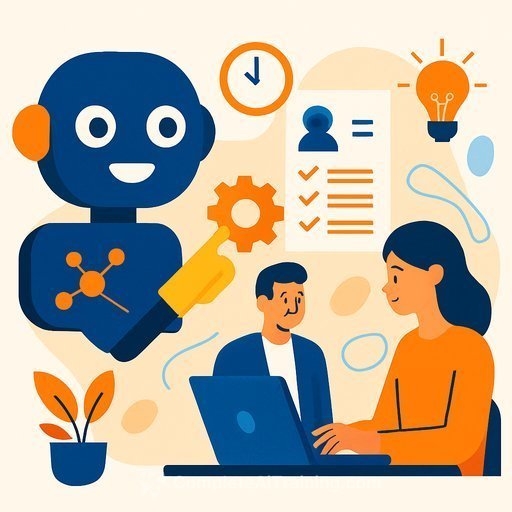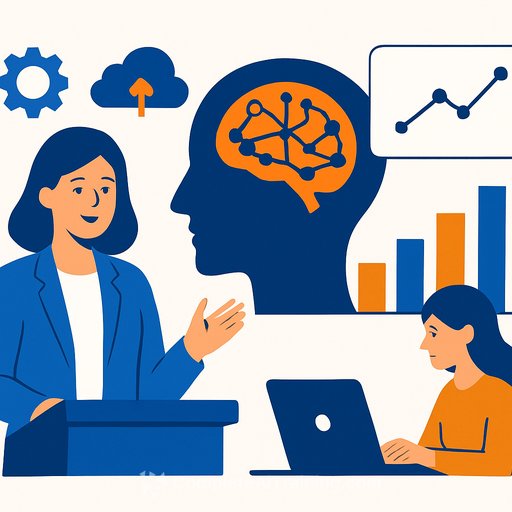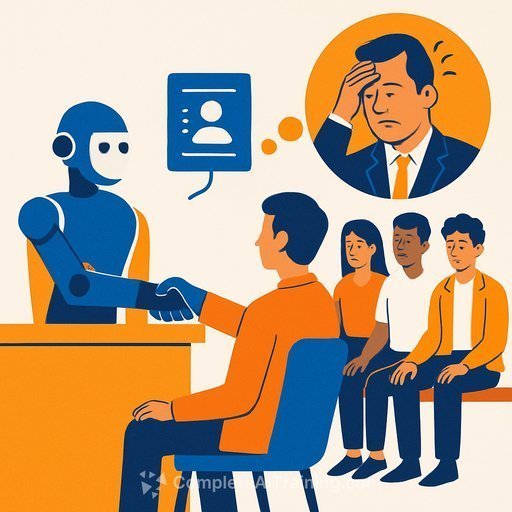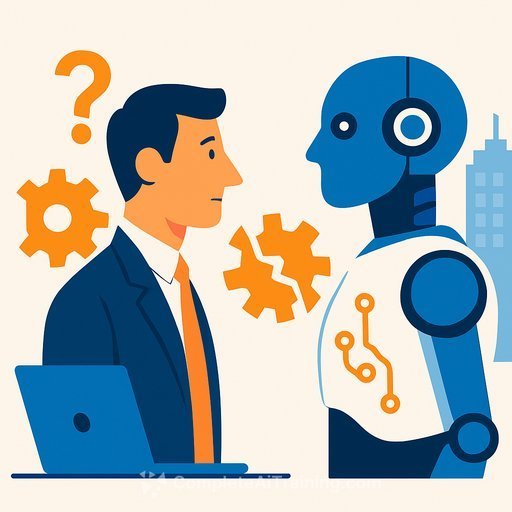When AI Avatars Conduct Job Interviews: A Cautionary Tale for HR Professionals
A startup named Job Bolt has introduced AI avatars that conduct job interviews. The idea is to help HR teams sift through candidates more efficiently by replacing initial interviews with AI-driven sessions. While the concept sounds promising, the experience can feel unsettling and far from seamless.
Job Bolt argues that resumes often contain inaccuracies that traditional HR systems miss. Their solution? An AI avatar asks candidates a pre-set list of questions in a video call format that mimics a one-on-one Zoom interview. Afterward, AI summarizes the responses, helping HR decide who should advance to a real-person interview.
The Uncanny Valley Effect
Trying this firsthand reveals a big obstacle: the avatar’s behavior is stiff and repetitive. Its non-verbal cues are limited and awkward, landing deep in the “uncanny valley” — where the AI looks almost human but triggers discomfort because it’s not quite right.
During the interview, the avatar pauses awkwardly for several seconds before responding with generic phrases like “Thank you for sharing” or “It sounds like…” These scripted replies give the impression of listening but lack genuine engagement. There’s no real-time feedback like nodding or eyebrow raises that help build rapport or guide the conversation.
The experience can leave candidates feeling uncertain and awkward, which risks misrepresenting their true abilities and personality. This is a critical point for HR professionals considering AI interviews: the technology may not yet capture the nuances of human interaction necessary for effective evaluation.
What HR Should Know Before Using AI Interviews
- AI interviews currently offer limited conversational flow and emotional intelligence.
- They may cause discomfort or confusion for candidates unfamiliar with this format.
- Generic responses and lag time can make the interaction feel robotic and disengaged.
- Candidates may perform poorly not due to lack of skill but because of the awkward interview setting.
Other startups have introduced similar AI recruiting agents, and it’s likely more will follow. While AI tools can streamline certain tasks, relying on them exclusively risks overlooking key human elements in hiring.
Advice for HR When Introducing AI Interviews
If your organization starts using AI avatars for interviews, consider offering candidates a trial run. This allows them to understand the system’s quirks and prepare accordingly. Denying this opportunity may signal a workplace culture that lacks transparency or empathy.
Giving candidates a chance to practice can reduce anxiety and improve their performance, resulting in fairer assessments. It also reflects well on your company’s approach to innovation—balancing technology with respect for the candidate experience.
For HR professionals wanting to build skills around AI tools and recruitment technology, exploring resources and courses can be valuable. Platforms like Complete AI Training offer a range of relevant programs to stay informed and make smarter decisions about AI adoption.
Final Thoughts
AI avatars conducting interviews are still a work in progress. They can save time but may not yet provide the nuanced interaction that human interviewers offer. HR teams should weigh these factors carefully and prioritize candidate comfort and fairness.
When introducing new AI hiring tools, transparency and preparation are key. Allow candidates to familiarize themselves with the technology to ensure the best outcomes for everyone involved.
Your membership also unlocks:




